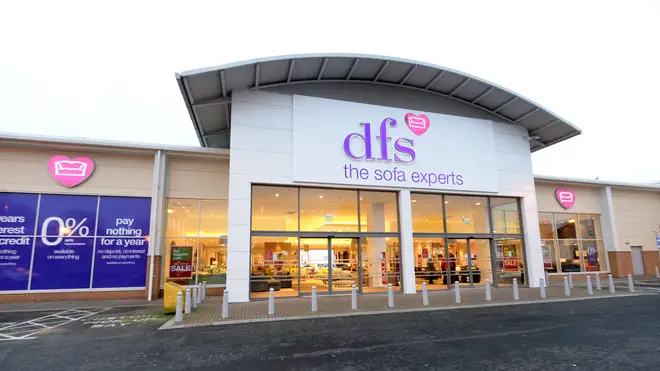
Nick Ferrari 7am - 10am
24 September 2020, 09:14

The group swung to a statutory pre-tax loss of £74.9 million for the year to June 28 from pro forma profits of £43.6 million a year ago.
Sofa chain DFS Furniture has cheered a strong bounce back in trading after slumping to an annual loss in an “extraordinary” year caused by the pandemic.
The group swung to a statutory pre-tax loss of £74.9 million for the year to June 28 from pro forma profits of £43.6 million a year ago after lockdown forced the closure of its showrooms.
On an underlying basis, it reported pre-tax losses of £56.8 million against profits of £50.2 million a year earlier.
Shares lifted 5% as it said the new financial year had started “very strongly” with all its showrooms now open and thanks to pent up demand as households prioritise spending more on their homes.
DFS said it was on track for additional sales of around £226 million in the new financial year, given sales growth of 7.6% in the past 12 weeks and a higher opening order book, which is set to deliver a solid first-half sales and profit performance.
But it added a note of caution, warning of a possible autumn slowdown in trading as the furlough scheme for workers comes to an end on October 31 and ahead of the Brexit deadline.
It said trading in October may be “significantly weaker” in the event of mass job losses across the country and consumer uncertainty.
Tim Stacey, group chief executive of DFS, said: “This has been an extraordinary year, unprecedented in the challenges posed by the closure of our showrooms, manufacturing and delivery capabilities for almost three months of our peak spring trading period.”
He added: “While the reported decline in profit is undoubtedly disappointing in headline financial terms, a significant proportion of this profit has already been recovered in the current year as we resumed customer deliveries.”
He said: “We believe that this growth is due to a combination of pent up demand from lockdown, consumers spending relatively more on their homes and the strength of the DFS and Sofology propositions in particular.”